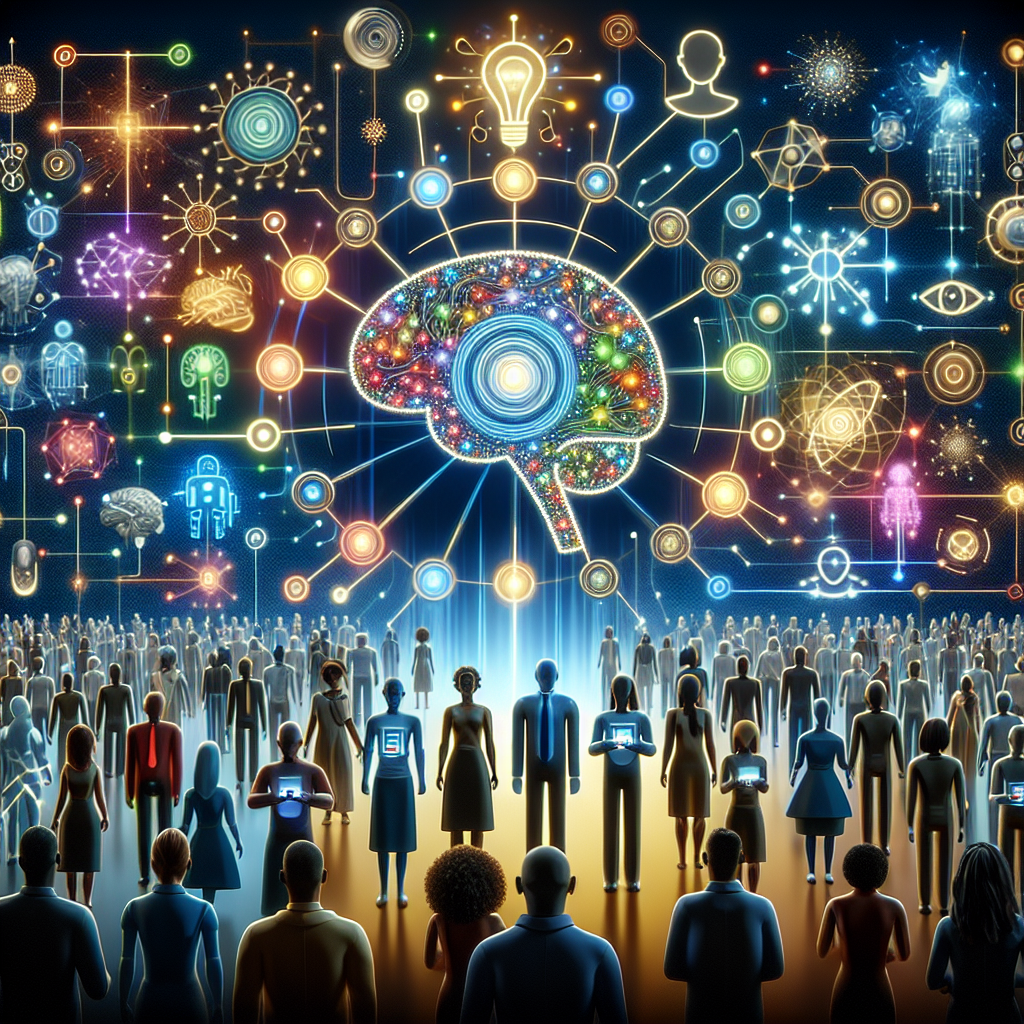The Democratization of AI: Ensuring Inclusivity in Technology
Artificial intelligence (AI) has the potential to revolutionize industries, improve efficiency, and enhance human capabilities. However, the rapid advancement of AI technology raises concerns about inclusivity and accessibility. The democratization of AI is essential to ensure that everyone has access to and benefits from this powerful technology.
What is the democratization of AI?
The democratization of AI refers to the process of making AI technology accessible to a broader range of users, including individuals, businesses, and organizations. This involves lowering barriers to entry, such as cost and technical expertise, to enable more people to take advantage of AI tools and applications.
Why is inclusivity important in technology?
Inclusivity in technology is crucial for several reasons. First, technology plays a significant role in our daily lives, from communication and entertainment to education and healthcare. Inclusivity ensures that everyone has equal access to these benefits and opportunities.
Second, technology has the power to address and exacerbate social inequalities. By ensuring inclusivity in technology, we can help bridge the digital divide and create a more equitable society.
Finally, diversity in technology leads to better innovation and problem-solving. By including a diverse range of perspectives and experiences in the development and deployment of technology, we can create more effective and ethical solutions.
How can we ensure inclusivity in AI?
There are several ways to promote inclusivity in AI:
1. Education and training: Providing resources and training programs to help individuals from diverse backgrounds learn about AI and develop the skills needed to use and create AI applications.
2. Diversity in AI development: Encouraging diversity in the AI workforce to ensure that a variety of perspectives and experiences are represented in the development of AI technologies.
3. Ethical guidelines: Establishing ethical guidelines and standards for the responsible use of AI to prevent bias and discrimination in AI systems.
4. Community engagement: Engaging with communities and stakeholders to understand their needs and concerns related to AI technology and involve them in the development process.
5. Accessibility features: Incorporating accessibility features into AI applications to ensure that individuals with disabilities can use and benefit from AI technology.
What are the challenges to inclusivity in AI?
There are several challenges to promoting inclusivity in AI, including:
1. Bias and discrimination: AI systems can perpetuate bias and discrimination if not properly designed and tested. Addressing bias in AI algorithms is essential to ensure fairness and inclusivity.
2. Lack of diversity in the AI workforce: The AI industry lacks diversity, with women and underrepresented minorities underrepresented in AI roles. Increasing diversity in the AI workforce is crucial to promoting inclusivity in AI.
3. Accessibility barriers: AI technology can be complex and difficult to use for individuals with limited technical skills or disabilities. Removing accessibility barriers is essential to ensure that everyone can benefit from AI technology.
4. Ethical concerns: AI technology raises ethical concerns related to privacy, data security, and the impact on society. Establishing ethical guidelines and standards for AI is essential to promote inclusivity and responsible use of AI.
5. Education and awareness: Many people are unaware of AI technology and its potential benefits. Increasing education and awareness about AI is essential to promote inclusivity and ensure that everyone has access to AI tools and applications.
Inclusivity in AI is essential to ensure that everyone has access to and benefits from this powerful technology. By promoting diversity, removing accessibility barriers, addressing bias, and establishing ethical guidelines, we can create a more inclusive and equitable AI ecosystem.
FAQs
Q: What is AI democratization?
A: AI democratization refers to the process of making AI technology accessible to a broader range of users, including individuals, businesses, and organizations. This involves lowering barriers to entry, such as cost and technical expertise, to enable more people to take advantage of AI tools and applications.
Q: Why is inclusivity important in technology?
A: Inclusivity in technology is crucial to ensure that everyone has equal access to the benefits and opportunities offered by technology. It also helps bridge the digital divide, promote diversity and innovation, and address social inequalities.
Q: How can we ensure inclusivity in AI?
A: To promote inclusivity in AI, we can provide education and training programs, encourage diversity in the AI workforce, establish ethical guidelines, engage with communities, and incorporate accessibility features into AI applications.
Q: What are the challenges to inclusivity in AI?
A: Challenges to inclusivity in AI include bias and discrimination, lack of diversity in the AI workforce, accessibility barriers, ethical concerns, and lack of education and awareness about AI technology.
In conclusion, the democratization of AI is essential to ensure inclusivity and accessibility in technology. By promoting diversity, removing accessibility barriers, addressing bias, and establishing ethical guidelines, we can create a more inclusive and equitable AI ecosystem.Ensuring that everyone has access to and benefits from AI technology is essential for creating a more inclusive and equitable society.

